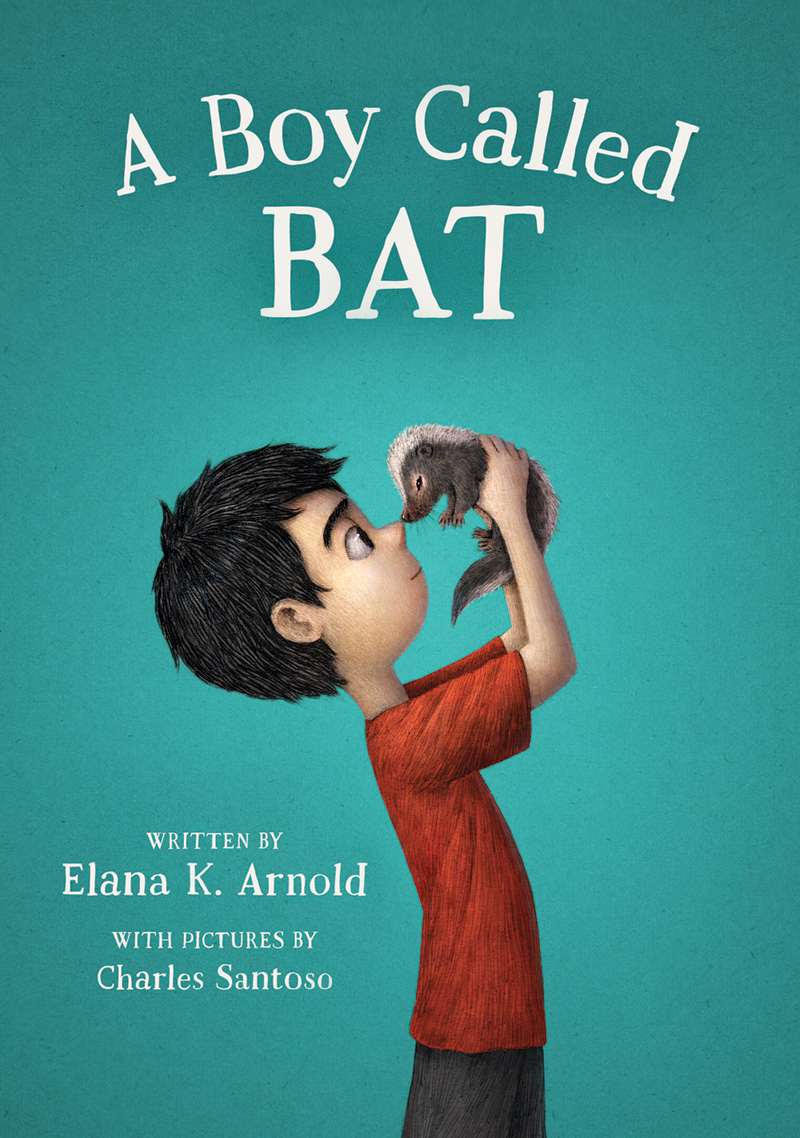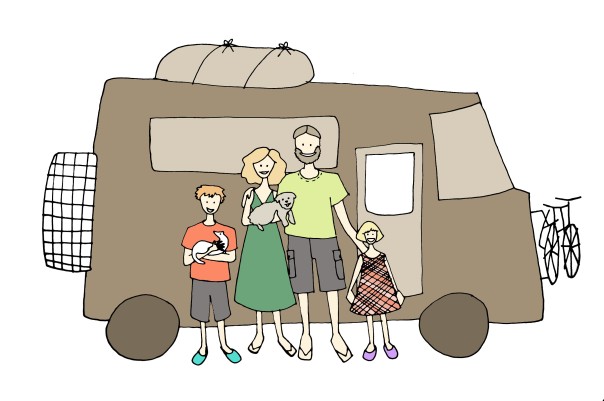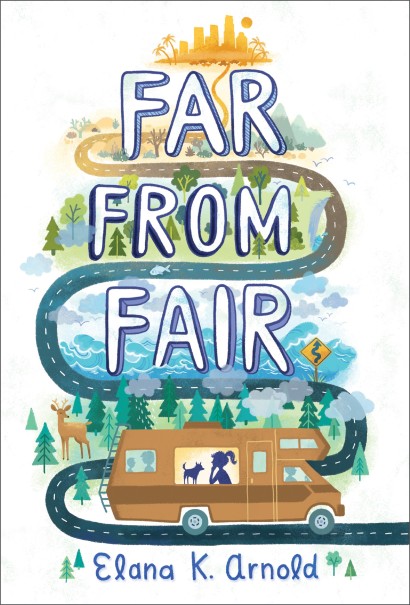Nerdy Book Club Essays
I have written four essays for the Nerdy Book Club. I thought I could archive them here, together.
Here is the first, entitled PONDS & BRAMBLES:
By the time I was eight years old, I’d moved half a dozen times. My parents bought and sold houses, fixing each up and flipping it for a profit, before deciding when I was six to move us from urban Long Beach, California to rural Atascadero, halfway up the California coast, and onto a two-acre parcel with a murky pond and a hillside resplendent in poison oak.
All kids are weird—all people are—but at the time, like most kids, I thought I was the weirdest. I wore heavy glasses, wished for curls with a desperate passion, and wanted—more than anything, even curls—a friend. A true, heart-deep, magical friend.
There was a girl in my second grade class. Her name was Nona. I don’t remember very much about Nona, and to be honest, probably none of it mattered—her likes and dislikes, her opinion about horses versus ponies, her favorite subject in school. All that mattered was that she was willing to be my friend.
From my vantage point now, I can see that Nona was lonely, too. We filled a need in each other’s lives. We announced our friendship by holding hands at recess, swinging the bridge made of our entwined skin and bones between us.
If you’ve read THE QUESTION OF MIRACLES, you already know how this friendship turned out. Nona and I did not name our daughters after each other. I wasn’t her maid of honor. We didn’t double date to Prom. Our friendship didn’t even survive the school year.
In middle school, after having moved several more times, I found myself surrounded by pairs. I was a single shoe. No one needs one shoe.
A few more moves and a few years later found me a freshman enrolling at yet another new school, this time three months before the academic year ended. It was there that I met Shayna, the first real best friend of my life. She got me, and she loved me, and, yes, she needed me as much as I needed her.
Many years later, after Prom, after marriage, after having a daughter (and naming her after a place rather than a person), I was living in Corvallis, Oregon (where THE QUESTION OF MIRACLES is set), and eating at American Dream Pizza when I got a phone call telling me that Shayna was dead.
My first question was, “But she’s okay, right? She’ll be okay?”
Dead was too much for my brain to understand in those first minutes. Even now, years later, I still find my fingers tracing her phone number on the keypad; I still hear her voice in my dreams.
If you’ve read THE QUESTION OF MIRACLES, you know that the main character, Iris Abernathy, has a dead best friend. Iris is in Corvallis, Oregon, and she wants desperately for Sarah to not be all the way dead. She, like I, would settle for scraps. Anything.
You may not believe this, but it is true: When I sat down to write THE QUESTION OF MIRACLES, I wasn’t thinking of Nona, or Shayna. When Claude the psychic tells her story of ruined friendship to Iris, I was as surprised as Iris to hear her tale—my own tale—about that first formative heartbreak. When Iris yearns for the return of her friend Sarah who is well and truly gone, it never crossed my mind that I was calling out, yet again, for Shayna to return to me.
Writing does not right past wrongs. Writing does not resurrect the dead. But, at its best, fiction dips ladle-like into the murky pond of memory, somersaults recklessly down the thorny, poisonous bramble of childhood, and emerges with something precious, and beautiful, and maybe, even, magical.
Here is the second, entitled ORIGINS:
Every story comes from somewhere. Maybe it’s from deep inside, a fear or a hope the author can hardly name. Maybe it’s a memory—the smell of magnolia flowers and summer sun, or the nose-twitchy pepper of a family barbeque.
With my last middle grade novel, THE QUESTION OF MIRACLES, I didn’t immediately recognize where the story came from. It wasn’t until I had some time and distance that I saw the parts of my life that seeped through and became the story of Iris Abernathy.
Not so with my forthcoming middle grade novel, FAR FROM FAIR.
Listen. Once there was a family. There was a mother and a father and a daughter and a son. There were pets and there was furniture and matching dishes and a stack of cloth napkins, neatly folded. There was a climbing tree.
It was a beautiful family, and they were happy. Well. Mostly happy.
In the evenings after work, the father disappeared into the garage to smoke cigars and worry. The mother arranged and rearranged the dishes and the napkins and the furniture and remembered, like a dream, a time before family, when she had planned to be a writer.
One day, the father came home. It was late, and his eyes were wide-white and wild. I got laid off today, he said.
Sometimes, when we turn a corner, we don’t recognize we’ve turned it until it’s far behind. We look back and we see, oh, there it is—that was the moment everything shifted.
But some corners, we see clearly. We make a choice that defines us, even if it scares us. This family did that. They sold the house, tree and all. They sold the furniture and the dishes and even the cloth napkins. They moved—parents, children, and pets—into an ugly brown RV. They hit the road.
The father stopped smoking. The mother began to write. First, a blog, called People Do Things. Then, later, novels. Not everything was made perfect. But it was made different.
You will not be surprised to hear that I am the mother in this story. Those blog posts were the first bits of writing that brought me to the rich world of writing for children that now defines so much of my day and myself.
Here is a picture of our family with our old RV, for my blog:
And here is the cover for my forthcoming middle grade novel, FAR FROM FAIR:
This is story of a girl, Odette Zyskowski, whose parents decide to sell everything and hit the road. They have their reasons—some that she understands, others that confound her—but the whole thing seems to Odette to be terribly unfair. And the farther they travel, the further they move from what Odette thinks is fair, from the way she thinks things should be.
This is a story I always knew I would write. The material is too rich not to be written. But though its origin is our family story, Odette’s path veers widely from the map I’d drawn for it…as the best road trips tend to do.
I once read that science fiction is always by necessity both about the future and about the time in which it is written. I think all fiction is like that. This story draws heavily on my past, but it’s about the present, too. As I wrote the first draft of FAR FROM FAIR, my father’s terminal illness worsened until we were forced to begin imagining a world without him in it. And though I intended to write an adventure road trip story, my present situation worried its way into the manuscript. Terminal illness of a loved one, Odette learns, is another thing to add to her growing list of Things That Aren’t Fair.
Some stories we choose, some choices we make, and others are thrust upon us. The road curves.
Here is the third, written to share the cover of A BOY CALLED BAT:
The first character I remember loving was a little girl with straight brown hair who lived on Klickitat Street. I loved that she was stubborn and imperfect. I loved the way she saw the world from the particular angle that only she, Ramona Quimby, occupied in her family, her school and her community. As I got older, I grew to see that I also loved how Cleary’s books about Ramona were simple and small and, at the same time, about big, universal, earth-shattering matters of importance: What do we do when we perceive injustice around us, as when Ramona felt that her teacher didn’t like her? How do we deal with big unfairnesses, as when Susan Kushner steals Ramona’s owl design? How do we help the people we love make better choices, and what are our limits in the choices other people make, like when Ramona hid her dad’s cigarettes?
By the time I met Bixby Alexander Tam, the boy called BAT, I was already the author of six novels—four YA, and two middle grade. I think I needed that much practice to become the writer I needed to be for A BOY CALLED BAT. Writing a chapter book, I think, is a process of distilling and clarifying rather than watering down or simplifying. Bat, like Ramona, has to deal with the big and the small, mashed up together: a tease-y big sister named Janie; a desperate desire to keep the baby skunk kit his veterinarian mother rescues; the way he sees the world from his particular angle— he’s a younger brother with divorced parents. He’s an autistic kid and an animal lover. He’s a boy who loves things to be a specific way almost as much as he loves vanilla yogurt.
I remember how it felt to disappear into my very first chapter books, to meet characters who sprang from black marks on a white page to become real. Not sort of real, not kind of real, but as real to me as I felt in my own skin.
I cringed when Ramona messed up. I grinned when she was clever. Beverly Clearly gave me words for the big emotions I was feeling, but didn’t yet have a clear way of communicating.
Kids are whole people, already, with a rich emotional landscape and full-grown fears and dreams. Writing books for emerging readers is a powerful and sacred honor. And the thought that kids might weave the boy called Bat into their imaginations and memories, the hope that they might carry him forward with them through their whole lives, as I have carried Ramona—well, come on. That is as much as any writer, of anything, could ever hope for.
And here is the latest, which the wonderful Donalyn Miller titled CREATURE COMFORTS AND A BOY CALLED BAT:
I was seven years old when my heart was broken for the first time, by a girl named Nona who didn’t want to be my friend anymore because I was “weird.” It was my cat Sabrina who absorbed my tears in her thick black pelt, who purred and licked and butted me with her head over and over again.
When we moved a third time in two years, Murray the hamster hung out with me, happily accepting the cheese puffs I offered.
At eleven, I got an astonishingly bad haircut—short in the back, really short, with long bangs, a haircut that might have looked good on a person with different hair but most definitely did not look good on me. It was my dog Charlie, a gentle black lab, who comforted me. He didn’t care about my hair, not one bit.
At my grandparents’ house, where I spent most weekends and chunks of each summer, Nana’s fat poodle, Diggy, napped next to me in squares of sunshine on carpet as I read stacks of books and nibbled on chocolates and grapes.
When I was sixteen and my parents divorced, I headed to the stable and saddled up Rainbow, my moody mare, who seemed to know that day not to bite, not to buck, but to run, fast and sure, as I clung to her, wishing her speed could truly take me away.
All my life, whenever there has been something to celebrate, someone to mourn, there has been an animal beside me. So when I became a mother, it was a natural thing for me to share this particular sort of relationship with my kids.
My son had a difficult time getting close to other children; he often misinterpreted their actions, and he didn’t always clarify his intentions, leading to conflicts, misunderstandings, and hurt feelings all around.
Enter Vegas, Max’s new ferret companion—a bit of an ankle biter, a wily and stinky tube of a pet. A pet can be a friend; it can also be a social lubricant, as effective for getting the party started among kids as a margarita machine is for adults.
Vegas lived a robust ten years, a good long life for a ferret, and he had adventures great and small—escaping through our dog door, being hunted deep in the night by my husband and me, armed with flashlights; moving away from California in an ugly old RV along with his dog pal Sherman and our family, house sold, stuff gone; a year in Oregon, where his white coat grew lustrous and thick; back to California; through the years of my boy’s childhood and into his adolescence.
There are no friends like our animal friends. They speak to us without words; they lick tears and bound joyfully and comfort us endlessly, endlessly.
My grandmother died on Friday. She was my favorite person, my ardent benefactress and steadfast force of love. She was, like me, an animal lover, becoming, in her mid-eighties, a vegetarian, in spite of her abiding love for deli meats. She adopted a cat—Yoahim—after my grandfather died, and for six years, she cheerfully endured the absolute worst behavior from that cat.
He was endlessly biting her. Each time I visited Nana (usually once a week, often more), she had a new bandage somewhere on her body: her forearm, her calf, her chest. She had the delicate skin of a very old person, and the bites would result in a slow purple leak of blood beneath the surface, blossoming and blooming bruises.
He’d lace himself between her legs as she walked, sometimes stopping just in front of her, laying down, endlessly in the way.
Death by Yoahim, we used to joke. That would be how she would go.
It wasn’t, though Yoahim was with her at the end, as we were, her grandchildren. The cat didn’t want to get too close in her last hours; he watched and waited in the doorway of her bedroom, his pupils dilated, his usually-busy tail very still.
All my life, animals have been a comfort to me. Now that my Nana is gone, I comfort Yoahim. I brought him home to our messy house, to my already-full menagerie. This morning I found him wrapped in my daughter’s arms, his head on her chest. She was sleeping; he was not. When I pushed open her door, he looked up at me, his expression inscrutable.
The comfort I find in my animals, the comfort my Nana found in Yoahim, the companionship Max found in Vegas, the healing Yoahim might be finding in this very moment in the arms of my daughter—that, I think, is where some of us meet and find our best and truest selves: in the care and keeping of an animal friend.






hi you have wote a lot of books and did a good job!!!!!
Hi, Sawyer!
Yes, I have written a lot of books! Thank you for reaching out to me!
All My Best,
Elana
As a german mother of an autistic boy wich turn 12 today i would like to thank you for Bat. He brokes my heart, made me cry, also bis wonderful mother an they got my whole sympathy within seconds. I hope your son is doing fine.
Thanks for bringing autisem in this world on a very lovley way
Bianca Grothe.
Hi, Bianca! I am so glad that Bat’s story is meaningful for you. Happy Birthday to your boy!
With Love,
Elana